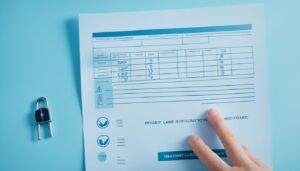What is the GDPR and Why Does Compliance Matter?
The General Data Protection Regulation (GDPR) is a data protection law that was passed by the European Union (EU) in 2018. It is designed to protect the personal data of EU citizens and give them control over how their data is used. GDPR compliance requires organizations to take steps to ensure that they are collecting, storing, and using personal data in a secure and legal manner.
Compliance with GDPR is essential for any organization that collects or processes the personal information of EU citizens. Failure to comply with the regulation can result in hefty fines and other penalties, so it’s important for organizations to make sure they understand their obligations under the regulation and be proactive to ensure that they’re in compliance.
How Does the GDPR Impact Your Business & How Can You Achieve Compliance?
The EU General Data Protection Regulation (GDPR) requires businesses to protect the personal data and privacy of EU citizens. For businesses, it means they must have a GDPR compliance checklist in place in order to ensure the protection of their customers’ data and privacy.
There are a few key considerations for organizations to keep in mind when it comes to GDPR compliance:
- Identify what personal data you collect and process: The first step in complying with the GDPR is to identify what personal data you collect and process. This includes data such as name, address, email address, and IP address.
- Ensure that you have a legal basis for collecting and processing personal data: Under the GDPR, you must have a legal basis for collecting and processing personal data. This can include obtaining explicit consent from individuals or relying on legitimate interests.
- Protect personal data: Organizations are required to implement appropriate technical and organizational measures to protect personal data from unauthorized access, use, disclosure, and destruction. This includes things like encryption, secure servers, and access controls.
- Be transparent about your data collection and processing practices: Organizations are required to be transparent about their data collection and processing practices, including providing individuals with information about how their personal data will be used and how they can exercise their rights under the GDPR.
Tools & Strategies for Achieving GDPR Compliance in Your Business
GDPR compliance is an important part of any business, regardless of size and type. It is essential to ensure that the data your business collects and stores is secure and handled with care. To achieve GDPR compliance, businesses must use the right tools and strategies to ensure that their data remains secure. The right tools can help businesses identify potential risks, while the right strategies can help them implement best practices for GDPR compliance.
The following is a list of some of the best tools for achieving GDPR compliance in your business:
- OneTrust: a comprehensive privacy management software that automates data mapping, inventory and risk assessment, as well as data subject rights request management.
- TrustArc: an AI-based tool that helps companies to identify and manage data protection risks, perform data flow mapping and automate compliance processes.
- CyberSafe: a cloud-based solution that helps organizations to automate compliance with GDPR and other data protection regulations.
- Proskript: a GDPR compliance tool that includes data mapping, data flow management and data incident management modules.
- GDPR365: a GDPR compliance tool that provides a centralized platform for data protection management, including data mapping, risk assessment, and incident management.
To recap, the GDPR is a set of EU regulations that apply to any organization that processes the personal data of EU citizens. It requires organizations to protect personal data, to have a legal basis for collecting and processing it, and to be transparent about their data collection and processing practices. By following these guidelines, organizations can be in compliance with the GDPR. However, it is important to consult with an attorney that can give you advice based on your particular situation.
Disclaimer: The information provided on this website or through any communication with us is for general informational purposes only and is not intended as legal advice. The use of this website or communication with us does not create an attorney-client relationship. You should not act or rely on any information on this website or communicated to you without seeking the advice of an attorney. An attorney-client relationship is only established once a written retainer agreement is signed by both the client and the firm. Please be aware that any communication sent to us before an attorney-client relationship is established may not be protected by attorney-client privilege.








